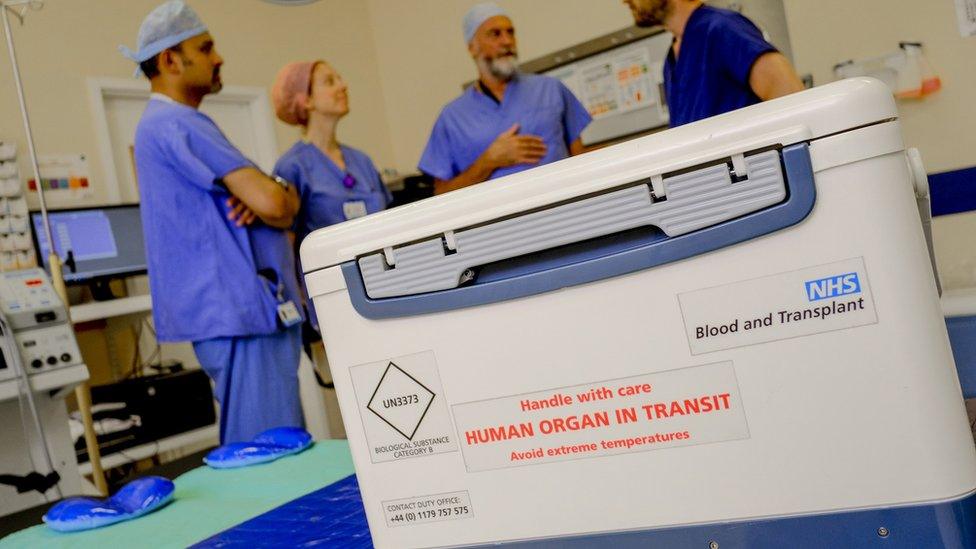'I was a fit guy but I needed a heart transplant'
- Published
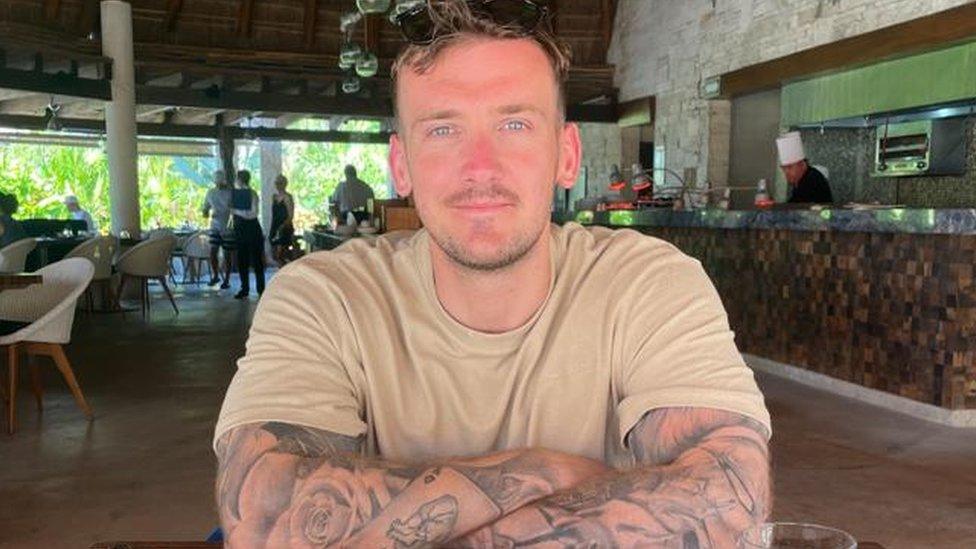
Paul Scougall says his scar on his chest is the only sign of the heart transplant that saved his life
A police officer whose life was saved by a heart transplant has urged Scots to share their wishes for organ donation.
Paul Scougall was just 27 when he went to hospital for a check up for a suspected chest infection, and came out six months later with a new heart.
Now 31 and back to full health, Paul is supporting an appeal to get people to confirm their intentions.
Scotland changed to an opt-out organ donation system in March 2021.
Under these rules, if people aged over 16 have not opted out of organ donation, they will be considered a possible donor if they die in circumstances in which they could donate.
In the past two and half years, more than half of adults in Scotland have registered their intentions with Organ Donation Scotland, with most agreeing to donate at least some organs.
The Dunfermline-based police officer told BBC Radio's Good Morning Scotland programme he had not long finished his probation period in the force when he started noticing he was very short of breath, but "suddenly it started getting worse and worse".
He thought he was being checked for a chest infection when he was referred to hospital in Edinburgh in 2019, but discovered he had an enlarged heart.
The check up turned into six-month hospital stay.
He was transferred to the Golden Jubilee Hospital in Clydebank and within weeks he was told he would need a donor organ.
"All of a sudden, I was a fit and healthy guy and within a few weeks I was being told I needed a heart transplant."
Paul added: "I had numerous complications with a collapsed lung, pneumonia and I was bedbound for my whole time in hospital - just a day short of six months.
"It was a totally desperate time."
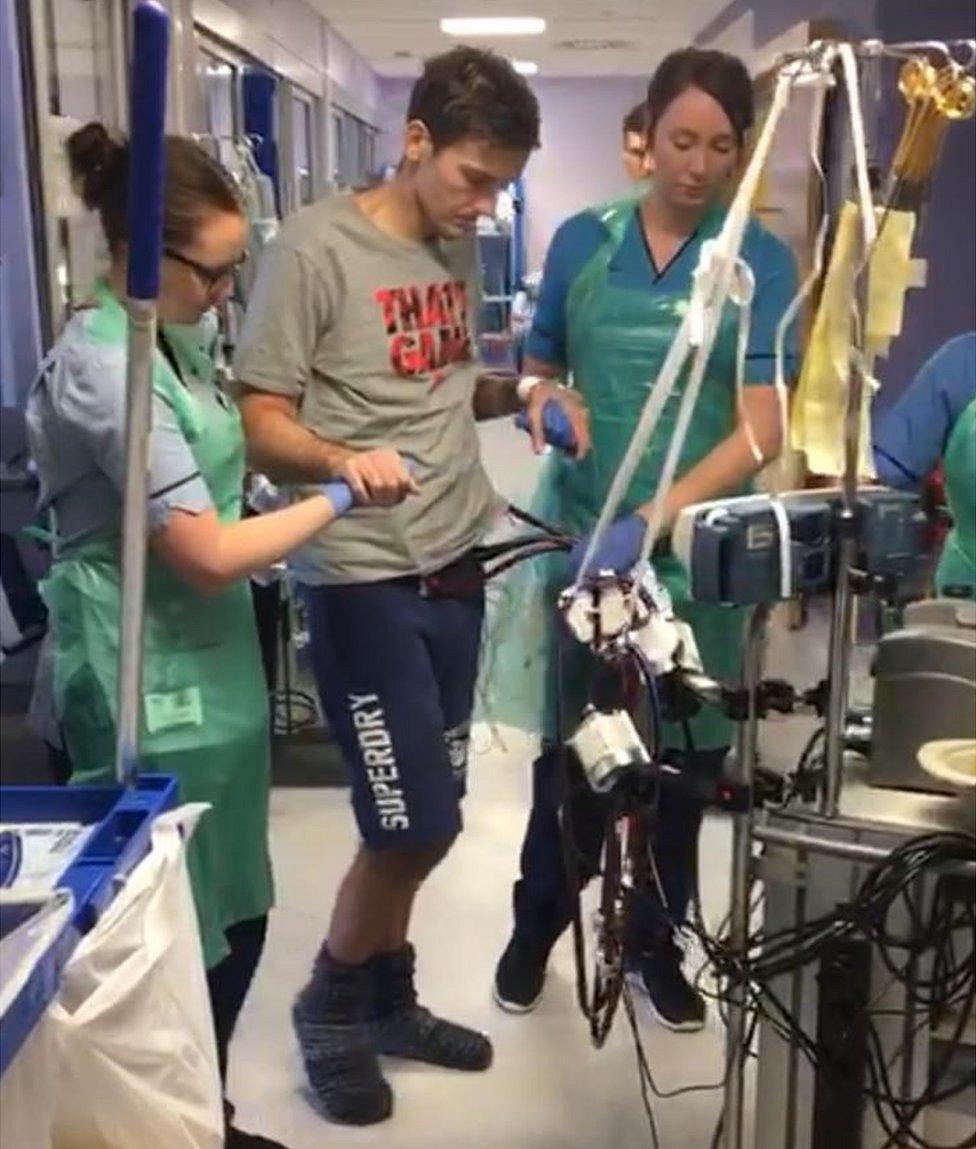
Paul had to learn to walk and talk again after his illness and heart transplant
He had a 50-day wait for a new heart and after three months of intensive in-patient rehabilitation, he could walk and talk again. He returned to work just months later.
The officer received the Police Scotland Unsung Hero award last year.
"Now I'm back to work as a full-time police officer and without the scar on my chest you would never know that I've had a heart transplant," Paul said.
'Make your decision known'
He urged people to take the time to register their wishes.
"I think if you've seen it from the other side, and just to see how desperate people are for organs of any type... and how much it means to the receiver of the organ or their family and friends I'm pretty sure that would change your mind or certainly give that boost to go out and make your decision known," he said.
New statistics released for Organ and Tissue Donation Week show 53.8% of eligible adults have agreed to donate some or all potential organ options after their death, and 3.3% opted out.
People can chose whether or not they would be willing to donate their heart, lungs, kidneys, liver, eyes, pancreas or small bowel.
Other "tissue" can also be donated, and while not defined current surgical procedures can use donated tendons and patches of skin.
The law assumes people aged 16 and over who have lived in Scotland for more than a year have agreed to be a donor should they die in circumstances where donation is possible, unless they have stated otherwise.
There are exceptions such as for people who would not be able to understand the law or if donation is likely to be against their views.
Organ Donation Scotland says bereaved families are always involved in decisions about organ donation.
Jenni Minto, minister for public health and women's health, said whatever people decide, it was "important to make it known" by registering their decision and sharing it with family and friends.
"This conversation plays a vital part in making it easier for loved ones to support organ donation decisions," she said.
People can register their decision online, external or by calling the Organ Donation Scotland helpline on 0300 123 23 23.
Related topics
- Published8 April 2022
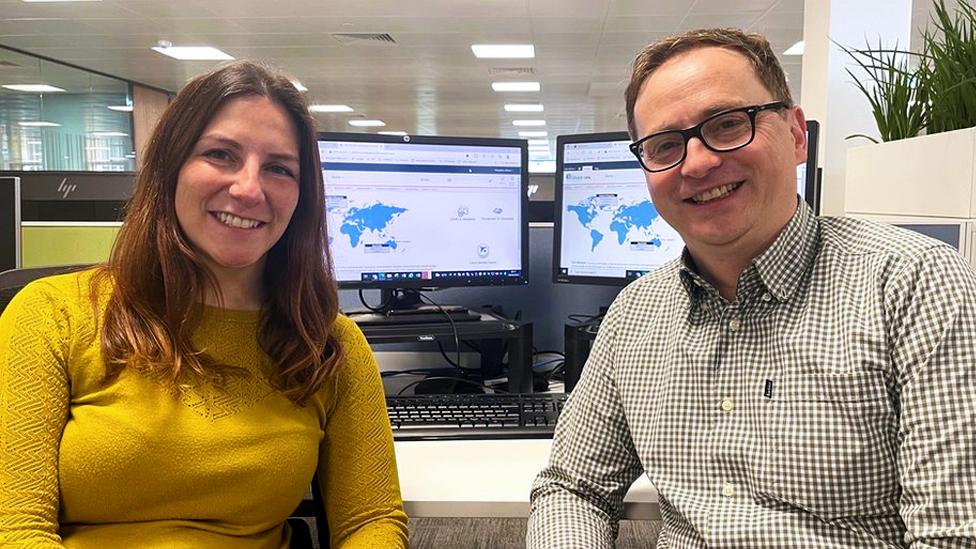
- Published20 September 2021
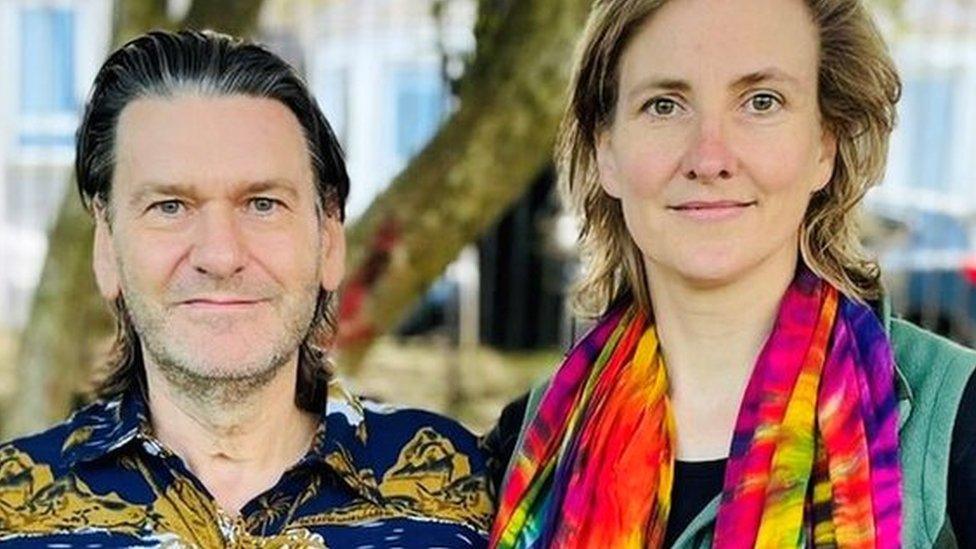
- Published16 April 2021
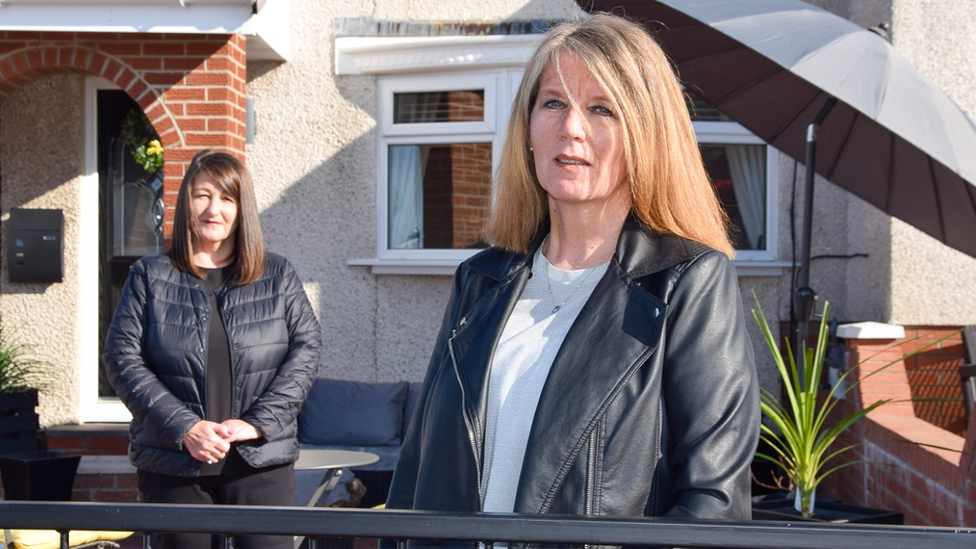
- Published25 March 2021
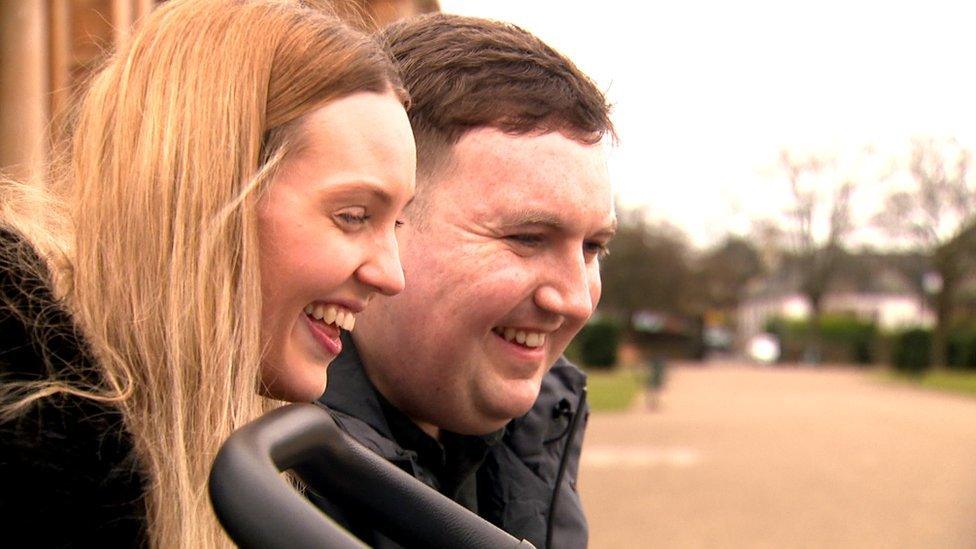
- Published14 September 2020
